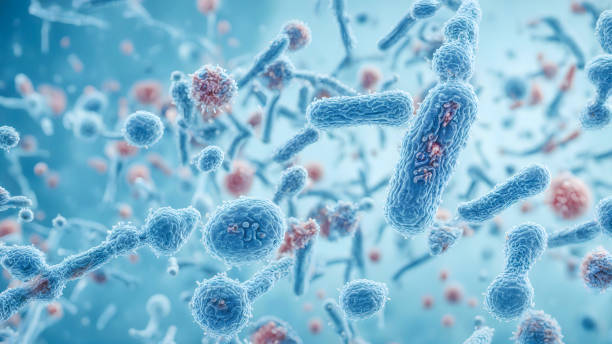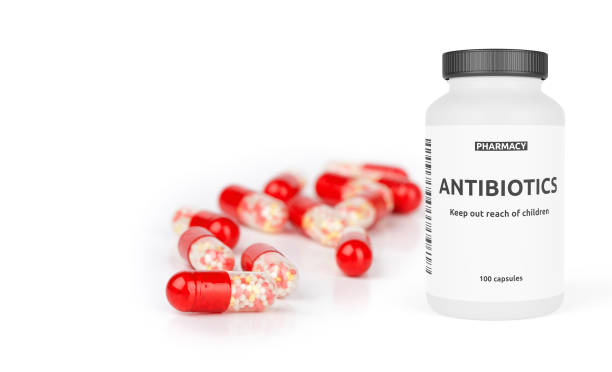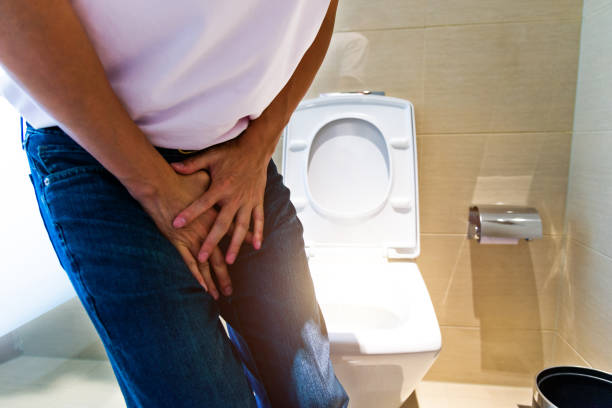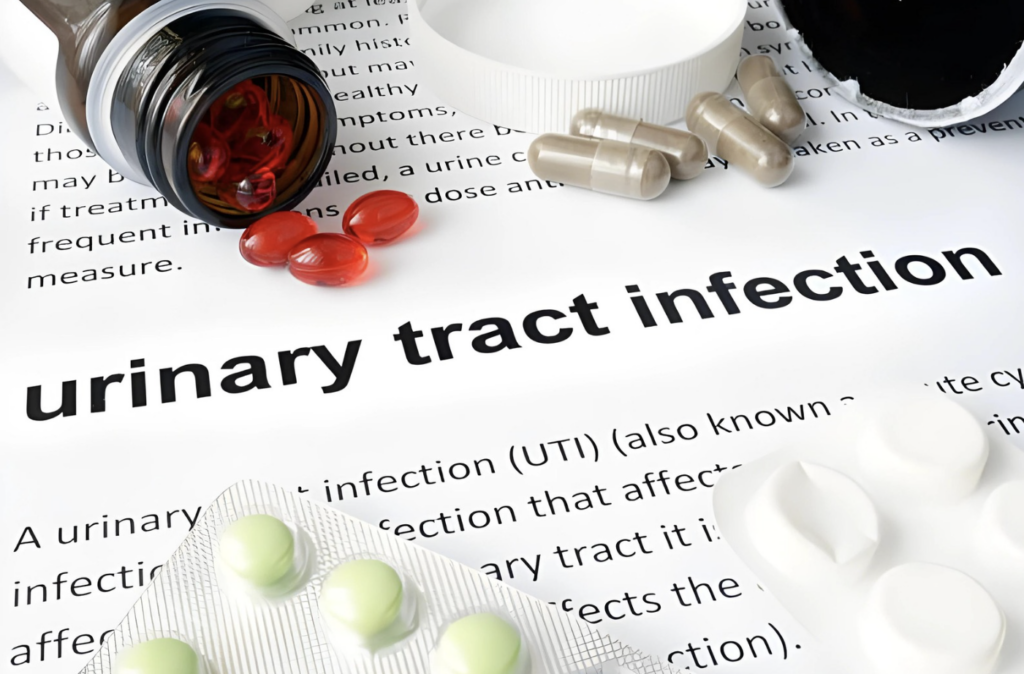Alternative Treatments, Health Conditions
Powerful Tips to Get Rid of UTI in Just 24 Hours
Dealing with a urinary tract infection (UTI) can be extremely uncomfortable and distracting, but getting relief does not have to be a protracted process. If you’re looking for a quick fix to relieve your symptoms and get rid of that UTI in 24 hours, you’ve come to the correct place.
In this article, we’ll look at various solutions, ranging from home treatments to medical interventions, to help you get rid of the agony and inconvenience of a UTI quickly. Prepare to recover your comfort and well-being with these expert-approved strategies.

Understanding UTIs
A UTI, or Urinary Tract Infection, is a prevalent ailment that affects millions of individuals around the world. It is caused by bacteria, particularly E. coli, which enter the urinary tract via the urethra and grow in the bladder. UTIs can affect both men and women, but women are more susceptible due to their anatomy.
Causes and Risk Factors
UTIs are caused by bacteria that enter the urinary tract. The most frequent bacteria that causes UTIs is E. coli, which is typically present in the stomach system. Other bacteria that can cause UTIs are Klebsiella, Proteus, Pseudomonas, and Enterococcus.
Women are more likely to have UTIs due to their anatomy. Women’s urethras are shorter than men’s, making it simpler for bacteria to enter the bladder. Sexual activity can also raise the incidence of UTIs, particularly among women.
Other risk factors for UTIs are:
- Older persons are more susceptible to UTIs.
- Diabetes can raise the risk of urinary tract infections.
- Poor hygiene: Failure to wipe thoroughly after using the restroom can raise the risk of UTIs.
- Urinary catheterization can raise the risk of UTIs.
- Kidney stones can impede the flow of urine, increasing the risk of UTIs.
- Symptoms and diagnoses
- UTI symptoms vary, but the most prevalent ones are:
- Pain or burning sensation while urinating.
- Frequent urination
- Urge to urinate.
- Urine that is cloudy or has a strong smell
- Pain in the lower abdomen or back
If you feel you have a UTI, you should see a doctor. Your doctor will do a physical examination and may request a urine test to detect the presence of bacteria. If bacteria are discovered, your physician may prescribe medications to help get rid of your UTI.
To summarize, UTIs are a common bacterial infection that affects both men and women. Women are more likely to have UTIs due to their anatomy. UTI symptoms can vary, but the most typical ones include pain or burning feelings during urination, frequent urine, and the need to urinate. If you suspect you have a UTI, you should consult a doctor for a diagnosis and treatment.

Medical Interventions
Antibiotics and Prescription Medications
Antibiotics are the most commonly used medicinal intervention to help get rid of UTI. They operate by destroying the germs that are causing the ailment. The sort of antibiotic recommended will be determined by the severity of the infection and the bacterium that is causing it. Trimethoprim and sulfamethoxazole (Bactrim, Bactrim DS), nitrofurantoin (Macrodantin, Macrobid), and ciprofloxacin (Cipro) are common antibiotics used to treat urinary tract infections.
It is critical to complete the entire course of antibiotics as prescribed by a healthcare physician, even if symptoms improve before the medicine is done. Failure to complete the full course of antibiotics can result in the formation of antibiotic-resistant bacteria, making subsequent infections more difficult to cure.
When to See a Healthcare Provider
If UTI symptoms persist or worsen after 24 hours, it is recommended that you consult a doctor. Individuals with a history of frequent UTIs, pregnant women, and those with underlying health concerns should seek medical assistance as soon as possible. A healthcare physician can use a urine test to establish the presence of an infection and recommend suitable therapy.
Antibiotics are an excellent treatment for UTIs, but they are not the sole alternative. In some circumstances, a healthcare professional may prescribe over-the-counter pain medicines like ibuprofen or acetaminophen to alleviate symptoms while the body fights the infection. Drinking enough water and avoiding irritants like caffeine and alcohol might also help reduce symptoms.
Overall, medical intervention is an effective method for treating UTIs. Seeking quick medical attention.

Home Remedies and Lifestyle
Hydration and Diet
When it comes to strategies that help get rid of UTI, diet and hydration are critical considerations. Drinking enough of water is essential for flushing out dangerous bacteria from the body. It is recommended that you drink at least eight glasses of water every day and eat foods high in water, such as melons, soups, oranges, and lettuce. Additionally, avoiding coffee, alcohol, and spicy meals might help minimize bladder inflammation.
Natural Supplements and Practices
Natural remedies and practices might also help with UTI symptoms. Cranberry juice is a well-known treatment for UTIs because it includes chemicals that keep bacteria from adhering to the urinary system walls. It is recommended that you drink unsweetened cranberry juice or use cranberry pills to achieve the desired results.
Probiotics can also help get rid of UTI by increasing the growth of beneficial bacteria in the gut, which can aid in the battle against harmful bacteria. Vitamin C pills can also be administered to help acidify urine, making bacteria less likely to grow.
Maintaining excellent hygiene habits is also important for preventing and treating UTIs. It is advisable to wear cotton underwear, avoid douching, change menstrual pads, tampons, and cups on a regular basis, and refrain from using spermicides. Applying heat to the lower abdomen can also help relieve UTI-related pain and discomfort.
Overall, maintaining good hygiene, staying hydrated, and using natural supplements will help ease UTI symptoms. However, if symptoms persist or worsen, it is best to seek medical assistance.

Prevention and Long-Term Management
Avoiding Recurrent UTIs
Preventing recurring UTIs is critical for long-term management. Some people may be more prone to UTIs than others, and it is critical to take precautions to prevent them from repeating. Here are some preventive actions you can take:
- Urinate frequently, particularly following sexual activity. This helps to flush out any bacteria that may have entered the urinary tract during intercourse.
- Following urination or bowel movement, wipe from front to back. This prevents bacteria from the anus from entering the urethra.
- Drink plenty of water and other fluids to help wash bacteria out of your urinary tract.
- Avoid using irritants in feminine products like douches and powders.
- Consider using a lubricant during sexual activity to avoid discomfort or harm to the urethra.
Lifestyle Adjustments and Monitoring
Making lifestyle changes and tracking symptoms can also help prevent recurring UTIs. Here are some suggestions:
- Wear breathable cotton underwear and avoid tight-fitting clothes.
- Avoid using spermicides or diaphragms, as these can increase the risk of UTI.
- Consider utilizing topical estrogen therapy to assist postmenopausal women in maintaining a healthy urinary system.
- UTI symptoms include painful urination, frequent urination, and murky or strong-smelling urine.
- If you experience signs of a UTI, seek medical attention right once. Early treatment can help keep the infection from spreading to the kidneys.
Preventive actions and lifestyle changes can help to lower the incidence of recurring UTIs. However, it is critical to seek medical assistance if symptoms of a UTI develop.
Conclusion
In conclusion, treating a UTI within 24 hours necessitates a multimodal approach that includes home treatments, fluids, and, if necessary, medical intervention. By addressing symptoms as soon as possible and following the tactics indicated in this book, you can greatly speed up your recovery and reduce discomfort.
However, it is important to remember that individual responses may vary, and obtaining expert medical guidance is always recommended, especially if symptoms persist or worsen. With effort and the appropriate technique, you may effectively manage and eradicate a UTI, restoring your health and quality of life in the shortest amount of time feasible.
Trusted Health, Wellness, and Medical advice for your well-being


